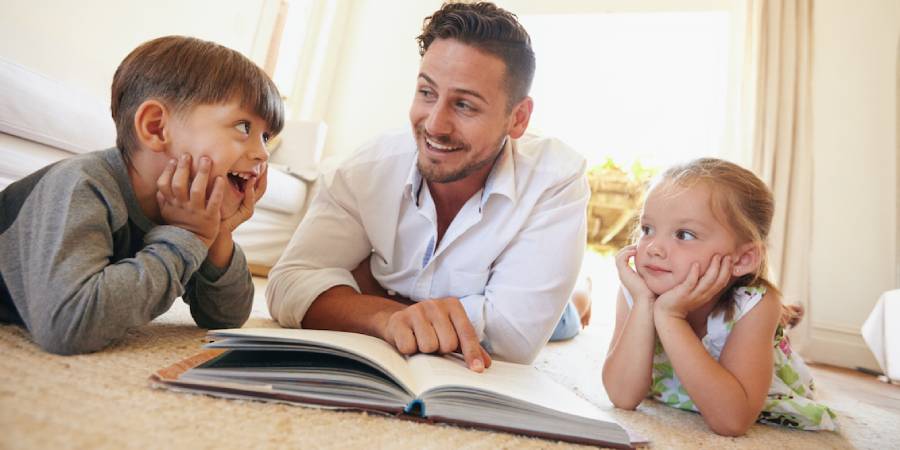Online resources
Parents urged to ‘take the lead’ on their children’s education
This article by Brett Henebery was published in the Educator.
More than 50 years of research confirms students have higher academic outcomes and improved attendance, behaviour, confidence and motivation when their parents are not simply ‘involved in their school’ but are actively “engaged in supporting their learning.
The bullies hiding in plain sight
“The bullies who are quick to raise their fists are not the ones we should be worried about – it’s those who are hiding in plain sight.” This Saturday Paper article from July 2023 is by journalist and parent Erin O’Dwyer.
(The article is free to read but you will need to supply an email address.)
Do Kids Really Misbehave for Attention?
One of the ageless truisms in parenting is that attention-seeking is a primary motivation for a child’s bad behavior. But lately, both the techniques and the attention-seeking hypothesis have been challenged…
How to Get Kids to Change Their Behavior for the Better
The Bronfenbrenner Center for Translational Research
When trying to convince someone to take action, our words matter – even more so when talking to a young person. Research demonstrates a technique called motivational interviewing is effective.
Appreciation Beats Praise
Joachim I Krueger PhD
Parents naturally want to praise their children, but is praise always the right thing to do? This article probes the difference between praise and appreciation.
6 Steps to Help “Mean” Kids Be Nice
Claire Lerner LCSW-C
When children boss other kids around, say hurtful things, exclude peers, and act in other unkind ways, they are not acting mean on purpose. By and large, these kids are struggling with difficult feelings of insecurity/self-doubt and anxiety.
Paranoid Parenting
Frank Furedi
These days it seems that every little issue – how to toilet-train a child, when you can leave them home alone, whether to force them to eat their greens – is made into a bigger problem by an overall crisis of parental nerve. This suggests that there must have been some major changes in the way that adults negotiate the task of looking after youngsters. The clearest symptom of this trend is the public panic about child safety…
(A series of 2 articles is available on the Guardian website.)
(See also Frank Furedi’s book of the same name.)
Radical Acceptance: A Gentle Way to Be With Our Feelings
John Amodeo PhD
Parenting can be a stressful business. We can take better care of ourselves emotionally if we can find a structure, process, or tool for dealing with uncomfortable feelings as they arise so that they don’t pile up and diminish our aliveness.
Stop Trying to Raise Successful Kids
Adam Grant and Allison Sweet Grant
Why teaching children to care about others (rather than a focus on ‘achievement’) might be the best way to prepare them for a successful and fulfilling life.
Manage Your Own Emotions First
Sanya Pelini
We now know that how we talk to kids about emotions has an impact on their social, academic, and psychological well being beyond the childhood years. We also know that before we can teach kids to regulate their emotions, we must learn to manage our own emotions. For instance, the evidence suggests that anxiety-prone parents are much more likely to pass on their anxieties to their kids.
Self-Control: Staying Calm, Focused, Present, and Productive
Dona Matthews, PhD
How to help your child with coping, resilience, achievement, health, and success. With love, time, and attention, even a ‘wild child’ can learn self-control.
How to handle insensitive comments
Jamie D Aten, PhD
Sometimes children, parents and teachers ‘put their foot in it’ and say completely the wrong thing at the wrong time. This article offers some strategies for how to respond when others say something insensitive.
How to make the hard conversation a little easier
Georgia Whitkin, PhD
Sometimes parents need to have difficult conversations to move things forward. This article has useful tips for getting through those difficult situations.
The Relationship Between Anger and Vulnerability
David Hanscom MD
When things go wrong for our children, as parents we often respond with anger. This article argues that anger is rooted in vulnerability, and explores how people in pain can release anger and improve their relationships.
12 Tips to Reduce Your Child’s Stress and Anxiety
Amy Przeworski PhD
Anxiety symptoms are common in children and adolescents, with 10 to 20 percent of school-aged children experiencing anxiety symptoms. So how can you help to reduce your child’s anxiety and stress?
8 Signs Your Anxiety Is Becoming an Issue
Andrea Bonior PhD
Part of caring for others (including your children) is caring for yourself. Many parents will feel anxiety if things aren’t going well for their children. This article gives 8 warning signs that anxiety is becoming an issue for you.
How We’ve Changed the Way We Think About Mental Health
Arianna Huffington
The stress, anxiety, isolation, and uncertainty of the pandemic are not only raising awareness but pushing us as individuals and as a society to have the honest conversations we always needed to have about mental health—especially when it comes to taking action.
How Parental Stress Can Affect a Child’s Health
Vanessa LoBue Ph.D.
Chronic stress can lead to behavioral and emotional problems for children at some point during development – sometimes, before the child is even born.
Self Determination Theory and Parenting
Mireille Joussemet PhD
Among environmental factors, the most widely accepted predictor of child mental health is parenting quality. And if the basic psychological needs for relatedness, competence, and autonomy are universal, children have them too.
Early Emotional Neglect Can Hobble Adult Self-Discipline
Jonice Webb PhD
Personalized structure is the missing element for the child and later the adult.
Being Kind to Yourself
Shoba Sreenivasan, Ph.D., and Linda E. Weinberger, Ph.D.
How being kind and compassionate to yourself can promote resilience and wellbeing.
Books
Connecting with your kids
Andy McNeilly
In this compact book, teacher and parent Andy McNeilly offers simple and fun opportunities for families to explore and learn together, skills that will lead to a fuller and more satisfying life, for children and their parent.
“Andy’s writing is accessible to all and he meets you where you are. His ideas are not complex – they are very simple which is rather disproportionate to the extraordinary effect that they can have on everyday family life. “ – Sue Maslin: mother of Rosie, Josh and Pippa.
Online resources listing above
No-Drama Discipline
Dan Siegel and Tina Payne Bryson
This book provides an effective, compassionate road map for dealing with tantrums, tensions, and tears—without causing a scene. Defining the true meaning of the “d” word (to instruct, not to shout or reprimand), the authors explain how to reach your child, redirect emotions, and turn a meltdown into an opportunity for growth. By doing so, the cycle of negative behavior (and punishment) is essentially brought to a halt, as problem solving becomes a win/win situation.
No-Drama Discipline Workbook
Dan Siegel and Tina Payne Bryson
Exercises, activities, and practical strategies to calm the chaos and nurture developing minds.
Raising a secure child
How Circle of Security Parenting Can Help You Nurture Your Child’s Attachment, Emotional Resilience, and Freedom to Explore
Kent Hoffman, Glen Cooper, Bert Powell
Today’s parents are constantly pressured to be perfect. But in striving to do everything right, we risk missing what children really need for lifelong emotional security. Now the simple, powerful “Circle of Security” parenting strategies that Kent Hoffman, Glen Cooper, and Bert Powell have taught thousands of families are available in self-help form for the first time.
John Hendry says, “This book by Hoffman, Cooper and Powell is judged by Prof Craig Ollson of Deakin University (Head of SEED) and me as of great use to parents. Craig and I have worked together on Attachment Theory and life course as well as Attachment and learning since 2000. Craig is a world recognised authority.”
Paranoid Parenting
Frank Furedi
Professor Frank Furedi’s book ‘Paranoid Parenting’, argues that a ‘culture of fear’ pervades parenting today, with parents perceiving their children as vulnerable, and as being perpetually at risk from several threats: from strangers, traffic, toys, and from the threat of falling behind in their development.
(See also: online articles by Frank Furedi)
Why We Act
Catherine Sanderson
Why do so many people just stand by or look the other way when bullying or cruelty are being perpetrated? Why We Act draws on the latest developments in psychology and neuroscience to tackle an urgent question: Why do so many of us fail to intervene when we’re needed―and what would it take to make us step up?
Why Love Matters: How affection shapes a baby’s brain
Sue Gerhardt
Why Love Matters explains why loving relationships are essential to brain development in the early years, and how these early interactions can have lasting consequences for future emotional and physical health.
Sex and Sensibility, The Thinking Parent’s Guide to Talking Sense About Sex
Deborah Roffman
With a rare directness and clarity about these profoundly important issues, nationally recognized sexuality educator Deborah Roffman challenges and teaches readers to develop a blueprint for opening the lines of communication with children of all ages.
Hold On to Your Kids: Why Parents Need to Matter More Than Peers
Gabor Maté & Dr Gordon Neufeld
International authority on child development Gordon Neufeld, Ph.D., joins forces with bestselling author Gabor Maté, M.D., to tackle one of the most disturbing trends of our time: Children today looking to their peers for direction–their values, identity, and codes of behavior. This “peer orientation” undermines family cohesion, interferes with healthy development, and fosters a hostile and sexualized youth culture.
Platonic
Marisa G. Franco, PhD
Making new friends, and deepening longstanding relationships, is possible at any age—in fact, it’s essential. The good news: there are specific, research-based ways to improve the number and quality of your connections using the insights of attachment theory and the latest scientific research on friendship.
“This book will really help parents support their children as they learn to relate to others.” – John Hendry.
Friendship
Lydia Denworth
Social connection is finally being recognized as critical to our physical and emotional well-being…. Denworth weaves together past and present, field biology and cutting-edge neuroscience, to show how our bodies and minds are designed to make friends, the process by which social bonds develop, and how a drive for friendship underpins human society.
“This book will really help parents support their children as they learn to relate to others.” – John Hendry.
Far From the Tree
Andrew Solomon
Andrew Solomon tells the stories of parents who not only learn to deal with their exceptional children but also find profound meaning in doing so.
Solomon’s startling proposition is that diversity is what unites us all. He writes about families coping with deafness, dwarfism, Down syndrome, autism, schizophrenia, multiple severe disabilities, with children who are prodigies, who are conceived in rape, who become criminals, who are transgender. While each of these characteristics is potentially isolating, the experience of difference within families is universal.



